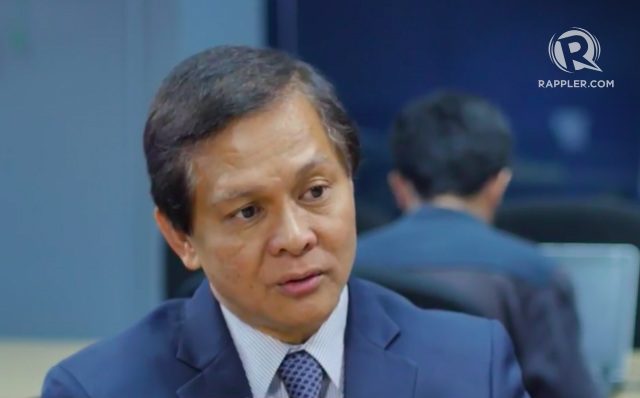SUMMARY
This is AI generated summarization, which may have errors. For context, always refer to the full article.

MANILA, Philippines – A way to preserve judicial independence is finding an alternative to highlight a lawyer or a judge’s track record – aside from the usual endorsement letters, Integrated Bar of the Philippines (IBP) executive vice president Egon Cayosa said.
In a Rappler Talk interivew on Monday, February 18, Cayosa explained that a program developed by the IBP called the Pillars of Justice Assessment Program (PJAP) aims to produce an official record of a judge or a lawyer’s work.
Started in 2018, PJAP gathers feedback every last Saturday of February from IBP members about offices, judges, and lawyers they had dealt with. A 3rd party tapped by the group then tabulates the comments before releasing a list of exemplary judges, among other results.
“This assessment will hopefully give them a portfolio that can help them because it’s a matter of record,” Cayosa told Rappler editor-at-large Marites Vitug.
“For example, you can see that my province, my fellow lawyers, those who appeal before us in the past certain number of years, I’ve been in the top 3. You can’t erase that,” he added.
The concept of the PJAP was formulated 6 years ago in 2012 as an answer to the lack of recognition for members of the judiciary – save for the Judicial Excellence Awards (JEA).
But JEA, which is organized by the Society for Judicial Excellence (SJE), in cooperation with the Supreme Court (SC), “is not enough,” according to Cayosa.
The results of PJAP can also be used when a judge applies for a higher position, whether at the Court of Appeals or the SC, instead of using endorsements by politicians and other public figures.
The Judicial and Bar Council (JBC) encourages submission of information – whether a complaint or derogatory information – that could help the council in screening applicants. (EXPLAINER: How the Judicial and Bar Council works)
“There are many good judges out there and they will not venture to apply for promotion because they don’t want to be indebted to politicians and they know that if you don’t have an endorsement, your chances of making it will not be as big as the others,” Cayosa said.
While the names of exemplary judges are released to the public, those who obtain “negative marks” are kept confidential. The IBP national board and the SC chief justice are the only ones who know the names of the judges who “need improvement.”
The comments about them, sans their identification, however, are still posted on bulletin posts in all halls of justices in the country.
“We don’t also want this to be used as a shaming mechanism and we don’t want this to erode the respect of every lawyer and every province for these judges,” Cayosa said. “But definitely, by the comments, they know themselves.”
IBP chapters are expected to conduct the second PJAP this coming Saturday, February 23. – Rappler.com
Add a comment
How does this make you feel?
There are no comments yet. Add your comment to start the conversation.